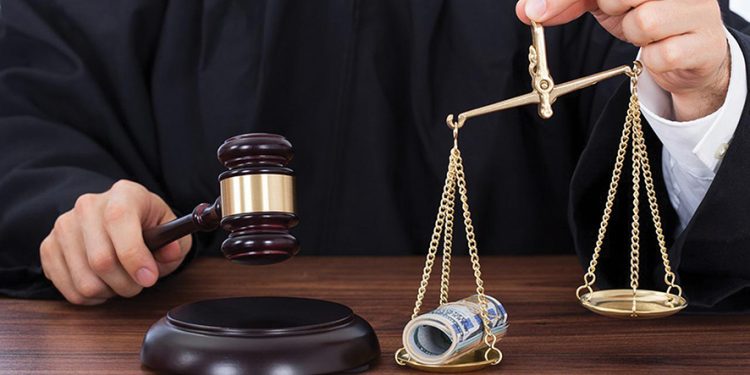Countries have always been broken down into categories: developed, economies-in-transition and underdeveloped Eventually, ‘underdeveloped’ was substituted by the politically more correct ‘developing’ – a euphemism that is still in active use. Where might Sakartvelo be on that scale? How about ‘economy-in-transition,’ just to avoid the less attractive ‘developing’? Fair enough, but the doubt will always be there as to whether Georgia, as developed as it is now, is capable of carrying that much load. The wishful thinking is ‘Yes’, but it is not only the economy that determines whether a nation is developed or developing; it also is the level of its cultural and political development, and the fairness and efficacy of its court system.
The recent loud punishment by the American administration of four Georgian judges by means of declaring their inadmissibility to the territory of the United States was an overwhelming message, signaling the unfitness of our current court system in the parameters of contemporary human rights and democracy. This is quite an accusation, especially toward somebody who happens to be a judge by both position and vocation. If proven guilty, that judge has their life marred forever. Anything could be thought and imagined. When word is out, it will have its effect whether you want it to or not. Nothing can stop the human imagination: Once corrupt, always corrupt! Isn’t this awful? And each of these judges with already fairly or unfairly stained reputations, now suffering under the worst possible suspicion, is a human being with mother and father, siblings, wife, kids, friends, neighbors, colleagues and of course those living under their rulings and sentences. This is practically an earthquake!
Should we the people of Georgian society ignore it, carry on as usual, asking others to mind their own business? Or should we look into this dire situation more deeply, with a genuine sense of democracy and respect for human rights? This is one way to treat this embarrassing circumstance. Another model of public behavior in this case might be to continue our blind belief in the American political culture, and this particular government is suggesting it entertains an unambiguous faith in those infallible American ideals we recently adopted and loyally carried through all those post-soviet struggles and strife.
The bottom-line here is that today’s Georgian court system is considered as faulty as was 10-15 years ago, and before, for that matter. After we got rid of our socialist economy and communist ideology, numerous things changed in this country, as they did in other former soviet republics, except one thing: The court. Courts have remained a problem everywhere. Many of the former soviet nations have turned out to be incapable of building a political-influence-free court system. And why is that?
I might have the answer, at least an answer with a grain of truth to it. It is not the reform as such that will put things straight on this most formidable side of our statehood. No! It is the way the citizens, among them the future judges, are being brought up by their respective families, traditions and societies; the human ideals that their education and spirituality are based on; the national history they have read and lived through, and all those little things their parents and grandparents whispered into their ears from their very infancy all the way to their adulthood. Just imagine for a second that we have indeed reformed our court system ideally, having received something absolutely pristine and impeccable, based on the laudable western experience, within which our Georgian judges have become operable, who have purified themselves of any political influence and instructed to behave as their colleagues are behaving in the West.
But what is the guarantee that the selfsame Georgian judges will behave as their western counterparts in accordance to their best knowledge, will and conscience, when left face-to-face with the incipient ruling they are supposed to make? The guarantee is zilch, nothing, nulla, niente! The only guarantee of their judicial fairness is their honest judiciousness, which does not come with a reform of the system. It only comes with their education, conscience, spirituality and personal purity. And this may only happen if a judge was born into and brought up in that kind of society. Period!
Op-Ed by Nugzar B. Ruhadze














